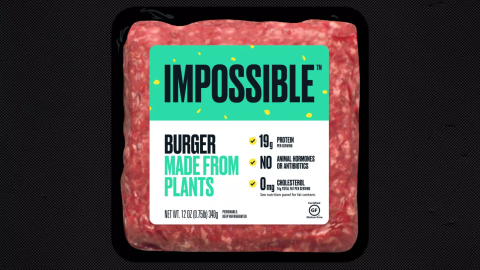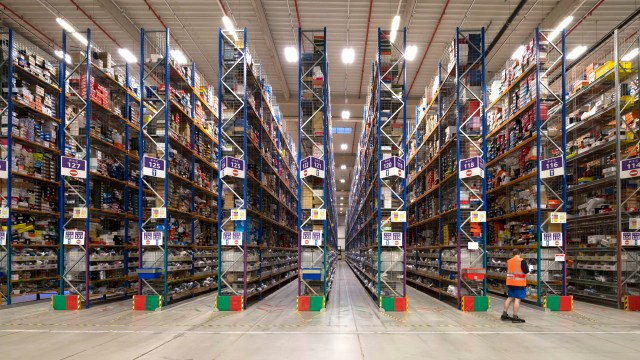Impossible Burger hits grocery stores on Friday

Impossible Foods
- The Impossible Burger will be available in 27 Gelson’s Markets stores in Southern California starting Sept. 20.
- Beyond Meat and Impossible Foods sell plant-based burgers in restaurants, but only Beyond Meat sells products in grocery stores.
- Tyson could begin to edge out these smaller companies with its unique meat product that contains plant and animal components, appealing to health-conscious “flexitarians.”
Impossible Foods and Beyond Meat have been battling to dominate the alternative meat industry, and now that battle is moving from restaurants to grocery stores.
The Impossible Burger will be available tomorrow in grocery stores for the first time, marking a new chapter in the company’s battle against Beyond Meat to dominate the alternative meat industry. Starting September 20, the plant-based burger will be sold at 27 Gelson’s Markets stores across Southern California, going for $8.99 per 12-ounce package, fresh or frozen.
But don’t plan on stocking up on Impossible Foods’ flagship product if you live in California: there’s a 10-package-per-shopper limit.
Impossible Foods isn’t the first or biggest company to offer plant-based burgers in grocery stores. In June, the rival (and more valuable company) Beyond Meat made its own grocery-store debut when it began offering its popular plant-based burger in stores like Whole Foods, Kroger, Safeway, Publix, Wegmans, Target, and Sprouts. What’s more, other brands — like Whole Foods’ own 365 Everyday Value label — have also beaten Impossible Foods to the punch.
But the plan to roll out the Impossible Burger to grocery stores has long been in the works, according to Impossible Foods CFO David Lee.
“Even three years ago, before we launched at our first restaurant, we thought about what was the right sequence to eventually reach retail,” Lee told Forbes, adding that the company wanted roughly 90 percent of meat-eaters to be aware of the brand before moving to retail.
After Southern California, it’s unclear where Impossible Foods will next choose to offer its retail product. But considering the company struggled to meet demand after recently teaming up with Burger King, it’s likely that Impossible Foods will choose a measured rollout.
“We are continuing to try to be as available as possible,” Lee told Forbes, adding that he predicts “future rapid increase in demand and future short-term scarcity.”
Can Tyson beat Beyond Meat and Impossible Foods?
Beyond Meat and Impossible Foods are currently the top players in the alternative meat industry, and it’ll likely to stay that way in the near future, as the investment research firm CFRA noted:
“We forecast Beyond Meat and Impossible Foods will remain the fastest-growing players in the space over the next couple of years, thanks to demand from quick-service restaurants.”
But Tyson, the world’s second largest meat processor, could soon begin to dominate the game, not only with its size and deep pockets, but also by exploiting one potential problem with Beyond Meat and Impossible Foods: these two popular plant-based burgers, while good for the environment, probably aren’t all that good for you.
Meanwhile, Tyson’s new brand Raised & Rooted is making what seem to be relatively healthier meat products that use plant and animal products.
“Its blended beef and plant-based patties specifically target the ‘flexitarian’ demographic, who are defined as consumers who purchase both meat and meat alternatives,” wrote CFRA’s Arun Sundaram.
“This patty stands out from competition, not only because it’s a blended meat and plant-based burger, but because it seems to be the healthiest option in the marketplace — it has a comparable amount of protein to traditional 80/20 beef burgers and other plant-based burgers, such as those offered by Beyond Meat and Impossible Foods, but far less total fat and saturated fat. We think more and more consumers are looking at labels and realizing that many plant-based products are not as healthy as they initially thought, and this is where we think Tyson can stand out.”





